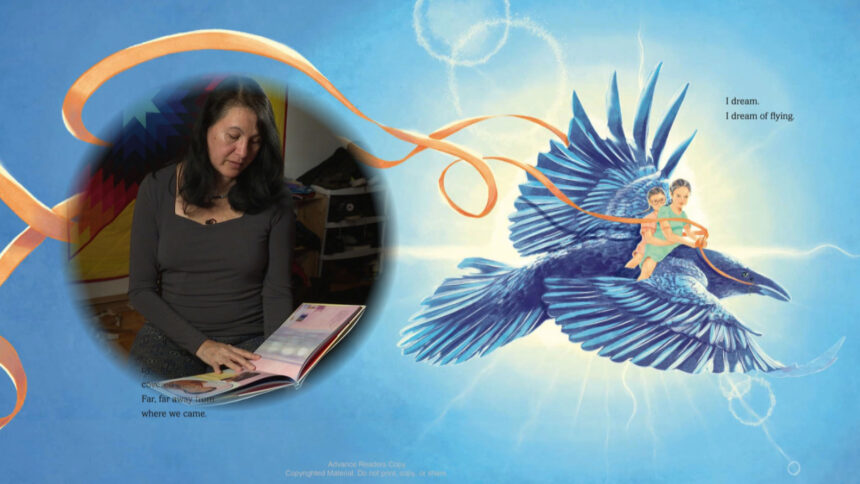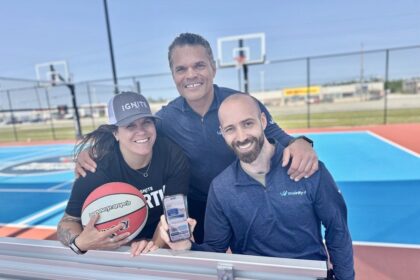When Na’kuset was a child, she was told to deny who she was. Her foster parents instead told her to tell people she was Israeli. “Being told I’m not Native and looking in the mirror and going, ‘no, wait a minute,’” she says. “I know I am.” A Cree woman with roots in Lac La Ronge, Sask., Na’kuset was removed from her family home. She was placed into foster care, then adopted by a Jewish family in Montreal. “It pretty much devastated my family, the whole Sixties Scoop,” says Na’kuset. Referred to as ‘60s Scoop, Indigenous children were forcefully removed from their homes, placed in foster care, with many being adopted into non-Indigenous homes across Canada and outside the country. At times, families picked these children out of a catalogue. Once chosen, children would then be taken from the foster home and relocated. Those who didn’t, were often moved between foster homes. The ‘60s Scoop occurred between the 1950s and 1980s. Upwards of 20,000 First Nations, Inuit and Métis children were removed from their homes during this period. Na’kuset, a well known Indigenous rights activist in Montreal, has been executive director of the Native Women’s Shelter of Montreal for more than 20 years. She says her experience led her to want to help other Indigenous people. “Looking at other people who were also part of the ‘60s Scoop and how they struggled and just knowing that I needed to—I didn’t need to—but I felt like I should try to create services,” says Na’kuset. Now her story is being told for the first time in a children’s book, titled “I Am My Name”. The book looks at how she was taken from her sister, and placed in a family where she felt like she didn’t belong. Na’kuset credits finding herself to her Bubbie—Yiddish for grandmother. It was a when she met a Mi’kmaq Elder, she asked for her spirit name, giving her the name Na’kuset. Na’kuset translates to the sun in Mi’kmaq. “You are bright, full of life, you are the sun,” the passage reads in the book. The book is co-authored by Emmy award winning composer and TV producer Judith Henderson. The book is illustrated by Chenoa Gap—also known as Onedove. Gao says she relates to Na’kuset’s story, as her mother survived the ‘60s Scoop, also known as the Sixties Scoop. “Reading her story, it’s like I understood her pain so much. I got her loneliness,” says Gao. “I knew that, that desire, that drive to be with her sister again.” Gao says she used dark and blue colours to illustrate the parts of the book where Na’kuset was felt displaced. For parts of the book where Na’kuset was happiest—including memories with her Bubbie and reconnecting with her sister—Gao used bright and vibrant colours to illustrate Nak’uset’s emotions. “I really wanted to put emphasis on that feeling of what it’s like to be in a completely foreign place, hearing completely foreign language around people that all of a sudden … are trying to pretend to be your family,” says Gao. Na’kuset says through her Bubbie’s love, she was able to find herself and reunite with her sister Sonya. She was separated from Sonya at three-years-old. Na’kuset says Sonya never stopped looking for her. “My sister made it her mission to find me,” said Na’kuset. “In the end, it actually broke her.” When Na’kuset was 25, the two reunited more than 20 years after their separation. “I feel like the whole 60 scoop just killed her,” she said. “Literally.” Sonya took her own life in 2018. Na’kuset says the book is dedicated to both Sonya and her Bubbie. “I didn’t necessarily want to write this book, but that was Sonia’s dying wish,” she says. “That her message of what the 60’s Scoop does to people gets out.” I Am My Name can be purchased on Apple Books, Barns & Noble and more. “I’m the last one standing. So I have to keep continuing,” says Na’kuset. “I hope for others who read it, it brings healing.” Continue Reading
New book I Am My Name educates children on the 60s Scoop

Leave a Comment










